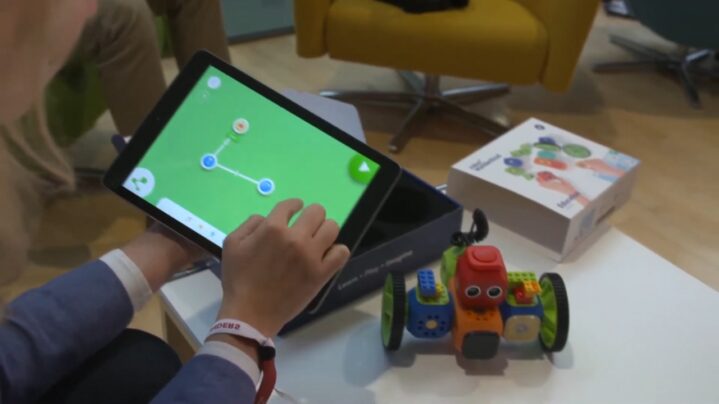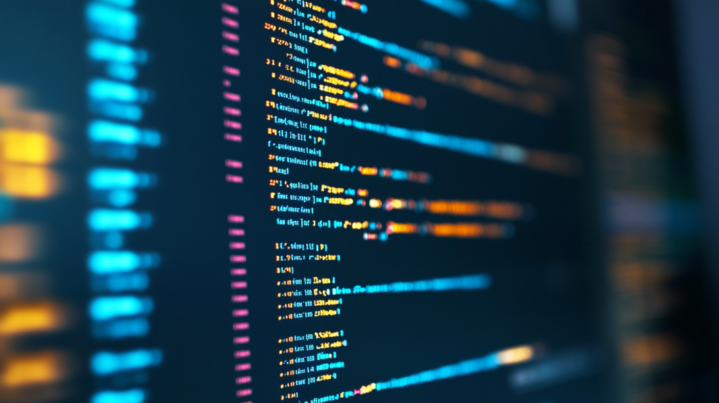Coding has become an essential skill for children to master. Being able to understand and create with code is becoming increasingly valuable.
The digital revolution transformed every aspect of everyone’s life, from how people communicate to how to work and play. Moving towards the future, it’s clear that coding will significantly shape the digital world. By introducing children to coding at an early age, you are equipping them with the tools they need to thrive in an increasingly digital society.
Why Kids Should Learn Coding – The Statistics
Recent statistics underscore the importance of coding education for children at a young age:
- It’s projected that 71% of all new STEM jobs will be in computer science by 2024, yet only 8% of STEM graduates major in Computer Science.
- Children who learn to code show a 60% improvement in their problem-solving skills.
- 90% of parents want their children to learn coding, recognising its importance in future career prospects.
- Students who learn coding are 40% more likely to pursue STEM careers later in life.
- Coding classes have been shown to improve math test scores by up to 30%.
Benefits of Learning Coding for Kids
Here are the top perks for enrolling your kids in a coding class:
1. Enhanced Problem-Solving Skills
Coding is essentially about breaking down complex problems into smaller, manageable parts. This process helps children develop strong analytical and problem-solving skills that are applicable far beyond the realm of computer programming.
When kids learn to write code, they’re trained to approach challenges systematically, identify issues, and develop efficient solutions. This skill set is invaluable in academic pursuits and daily life situations.
2. Fostering Creativity

Contrary to popular belief, coding is a highly creative endeavor. It allows children to bring their ideas to life. They can create a game, design a website, or develop an app. This creative expression can boost confidence and encourage innovative thinking.
Coding provides a unique canvas where imagination meets logic. It allows your little ones to express themselves in new and exciting ways.
3. Improved Logical Thinking
Programming requires a structured, logical approach to thinking. As children learn to code, they develop the ability to think sequentially and understand cause-and-effect relationships, skills that are valuable in many areas of life. This critical thinking extends to improved mathematical abilities and enhanced scientific reasoning.
4. Future Career Opportunities
There is a growing demand for coding skills in the job market. By 2025, it’s estimated that 3.5 million STEM jobs will go unfilled, with computers accounting for 71% of all new STEM employment. Introducing children to coding early on can give them a huge advantage in their future careers.
Beyond traditional tech roles, coding skills are increasingly valued in fields like finance, healthcare, and even creative industries.
5. Enhanced Collaboration and Communication Skills

Many coding projects involve teamwork, which helps children develop important collaboration and communication skills. These soft skills can benefit children in various aspects of their lives, including any professional setting.
Learning to articulate ideas, work in teams, and provide constructive feedback are all part of the coding learning process.
6. Digital Literacy and Technological Fluency
Understanding how technology works is becoming as important as traditional literacy. Coding helps kids become creators, not just consumers, of technology.
7. Persistence and Resilience
Coding often involves trial and error, debugging, and overcoming challenges. This process teaches children the value of persistence and helps them develop resilience in the face of setbacks. These are crucial life skills that extend far beyond coding.
8. Computational Thinking Skills

Coding introduces children to computational thinking – a problem-solving approach that involves breaking down complex problems, recognizing patterns, and developing step-by-step solutions. This skill is increasingly valuable in today’s data-driven world and is applicable across various disciplines.
9. Enhanced Academic Performance
Learning to code can positively impact performance in other academic areas. The skills developed through coding often translate to improved performance in mathematics and sciences.
10. Entrepreneurial Mindset
Coding empowers kids to turn their ideas into reality. This can foster an entrepreneurial spirit, encouraging them to identify problems and create solutions.
Many young coders have gone on to start their own tech ventures, showcasing the potential of early coding education.
11. Global Connectivity

Coding is a universal language. Learning to code can connect children with a global community of young programmers, fostering cultural exchange and collaborative learning opportunities across borders.
12. Improved Focus and Organization
Programming requires attention to detail and organized thinking. As children learn to code, they often develop better focus and organizational skills, which can benefit them in all areas of their lives.
By introducing children to coding at an early age, you are not just teaching them a technical skill. You are equipping them with a powerful set of cognitive tools and life skills that will serve them well in any future they choose to pursue.
As technology continues to shape the world, the ability to understand and create with code is becoming an increasingly valuable asset, making coding education an investment in your children’s future success and empowerment.
Methods of Learning Coding
There are numerous ways for children to learn coding, catering to different learning styles and preferences:
- Online Resources: Platforms like Scratch and Software Academy offer free, interactive coding lessons for kids.
- Coding Books: There are many age-appropriate books that introduce coding concepts through engaging stories and activities.
- Coding Games: Games like Minecraft and Roblox make learning to code fun and interactive.
- Coding Camps and Workshops: Many organizations offer coding camps and workshops specifically designed for children.
- School Programs: Some schools have integrated coding into their curriculum, recognizing its importance in modern education.
Online Coding Courses for Kids

When choosing a coding class for your little ones, make sure to enroll them in a premier institution for children’s coding education, like Software Academy. Their comprehensive programs cater to various age groups and skill levels, offering a unique and powerful blend of theoretical knowledge and practical application.
Key Features
- Age-Appropriate Curriculum. Courses are tailored for different age groups, ensuring that the content is challenging yet accessible.
- Hands-On Learning. Students work on real projects, applying their skills to create games, websites, and apps.
- Expert Instructors. All courses are led by experienced programmers who are also skilled educators.
- Small Class Sizes. This ensures personalized attention and support for each student.
- Flexible Learning Options. Both in-person and online classes are available to suit different schedules and preferences.
Skills Gained at Coding Courses
- Proficiency in popular programming languages like Python, JavaScript, and Java
- Understanding of fundamental coding language concepts and algorithms
- Web development skills
- Game design and development
- Basic artificial intelligence and machine learning concepts
Conclusion

Coding for kids is about equipping children with core soft skills that will benefit them in all areas of life.
There are many ways to introduce children to the world of coding, whether through online resources, coding camps, or specialized programs like those offered by Software Academy. As parents and educators, it’s your responsibility to provide these opportunities and support children as they embark on their coding journey.
The future is digital, and by teaching kids to code, you are not just preparing them for that future – you are empowering them to shape it.
